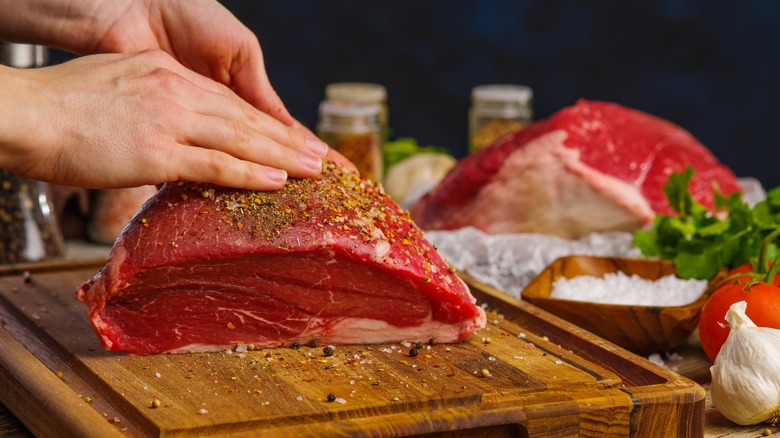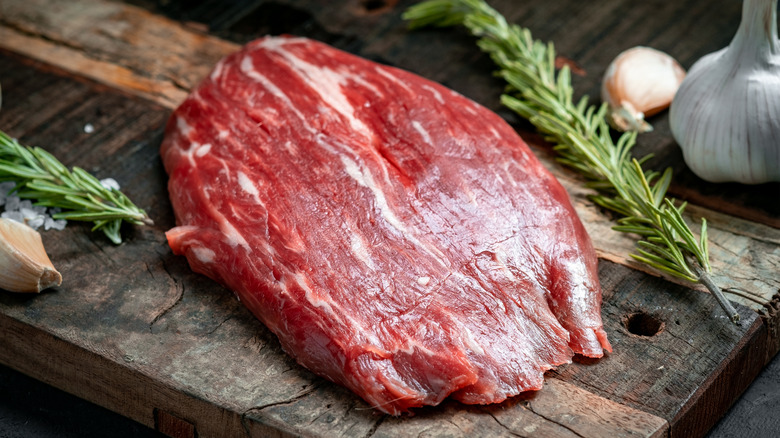What Makes Longhorn Beef Unique?
It's no secret that beef has gotten a bad rap these days. It is thought that those with diets high in red meat are more likely to develop certain diseases. Many studies have found that eating red meat has been linked to colorectal cancer and can increase the risk of other diseases, such as type 2 diabetes and coronary heart disease (via Scripps). For this reason and others, sales of plant-based meat products have skyrocketed. Euromonitor International reports that the leading reason people are choosing plant-based meat alternatives is concerns over health. Their research indicates that 37% of consumers say that eating plant-based alternatives makes them feel healthier, and 25% say they choose them to avoid long-term health risks.
However, luxury beef, like wagyu, has also seen an increase in growth over the last few years. The meat is said to be healthier than other red meat, and the many nutrients, such as protein, folate, zinc, and fiber, are winning over even the most health-conscious (via GlobeNewswire). In North America, another healthy, high-quality beef product is stocking the freezer aisles, and that's Texas Longhorns. These cows are starting to make a name for themselves and may be the next coveted luxury beef.
is Longhorn meat healthier?
According to the Texas Longhorn Breeders Association of America, you don't have to forgo red meat to lead a healthy lifestyle, thanks to Texas Longhorns. Compared to other breeds, longhorn beef is much leaner and contains less saturated fat. Longhorn beef also is able to retain its unique flavor while still being lower in calories and cholesterol than white meats, like chicken and turkey. It also is a great source of protein, zinc, and vitamin B12.
Many ranchers are also turning to this breed because they are easier to maintain. Longhorn Roundup News notes that they are easy to raise because they have a natural immunity to common parasites and diseases, are not picky eaters, and are suited to various climates.
Newswire reports that consumers are more often opting for Prime beef, as the proportion of that grade has gone from 3% to 10% in the U.S. So clearly, customers are willing to pay more for higher quality, often healthier beef. It seems the Texas Longhorn will stick around for the time being, and purchasing some from your local butcher may be a great introduction to premium beef.

